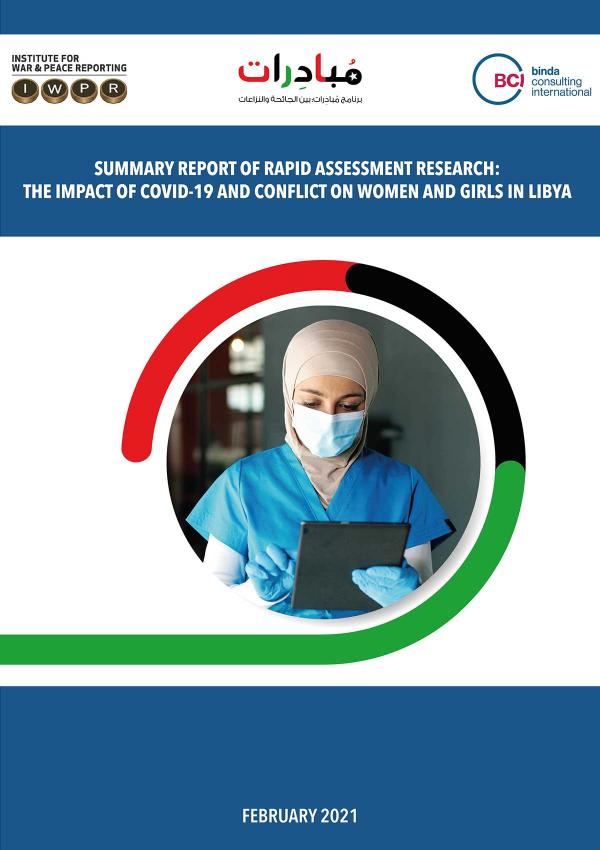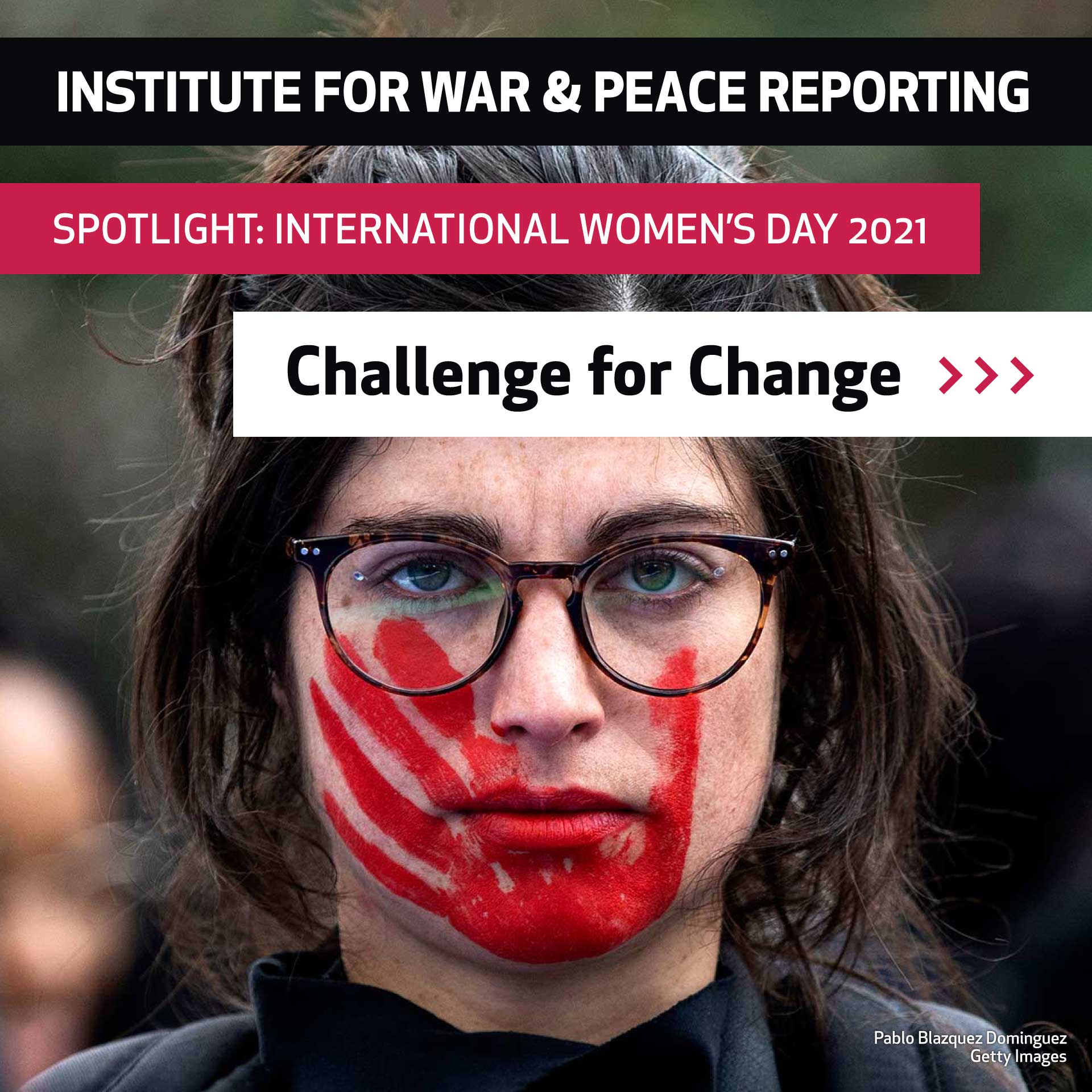Libya: Caught Between Conflict and Covid-19
Research highlights unique gender component of ongoing economic and health emergency.
Libya: Caught Between Conflict and Covid-19
Research highlights unique gender component of ongoing economic and health emergency.
A new IWPR report (Impact of Covid-19 and Conflict on Women and Girls in Libya) has revealed the depths of the impact of the Covid-19 crisis on women and girls in Libya.
Research conducted by 11 civil society organisations identified the dire economic situation, with the impact of conflict exacerbated by the pandemic, as presenting particularly acute challenges for women.
For instance, the suspension of many public sector salaries has had a disproportionate impact on women, who are often employed as teachers. Lockdowns and business closures have also placed a specific burden on small-scale female entrepreneurs who were forced to abandon enterprises such as sweet shops, craft and sewing workshops or food production.
Matters appear considerably worse in the south of the country, where respondents reported more severe scarcities of essential goods and basic foodstuffs.
Women reported feeling completely sidelined from any consultative process. At the beginning of the pandemic, a coalition of 14 Libyan NGOs wrote an open letter to the country’s presidential council urging gender-sensitive recommendations be included in the coronavirus action plan.
But many of those interviewed noted that official responses had not prioritised women’s unique needs or circumstances.
As elsewhere in the world, the pandemic led to an increase in domestic abuse. In Libya, gender-based violence is poorly documented and, experts believe, under-reported.
Covid-19 also pushed the issue of women’s health even farther down the list of priorities in an ailing and neglected care system.
Produced with the support of the UK government and in partnership with Binda Consulting International (BCI) and Libyan NGOs, the interviews and focus group discussions with health workers, activists, teachers and public sector employees were carried out across Libya in late 2020.
The assessments will now enable IWPR’s partners on the ground develop appropriate responses to help mitigate the impacts of the pandemic on vulnerable women and girls.


